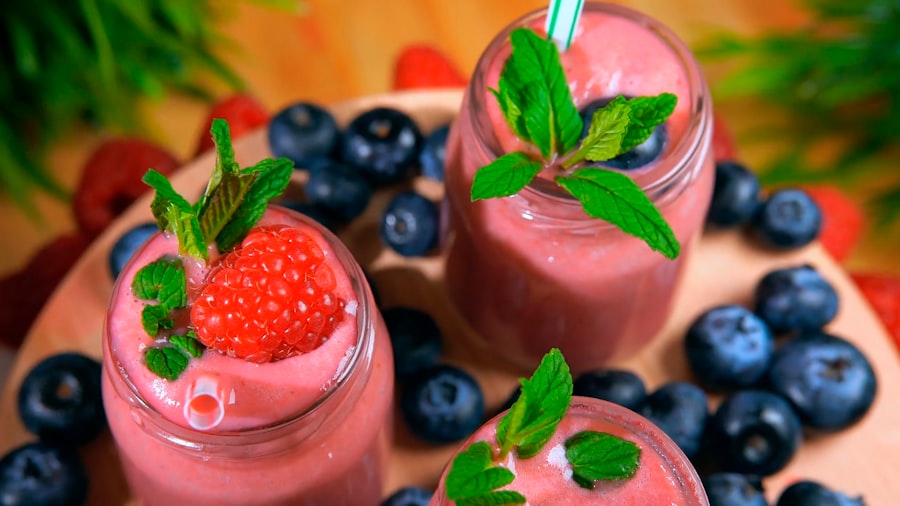A pre-workout diet is crucial for providing the body with essential fuel and nutrients to optimize exercise performance. It enhances energy levels, endurance, and overall workout efficiency. Without proper pre-workout nutrition, the body may lack the necessary energy to perform optimally, potentially leading to decreased performance and muscle fatigue.
A well-balanced pre-workout meal can also help prevent muscle breakdown and improve post-exercise recovery. Consuming the right balance of macronutrients, including carbohydrates, protein, and fats, is essential to ensure the body has adequate fuel for a workout. Moreover, a pre-workout diet can enhance mental focus and concentration during exercise.
Proper nutrition before physical activity helps stabilize blood sugar levels, preventing dizziness or lightheadedness during intense workouts. It can also improve mood and motivation, making it easier to persevere through challenging exercises. By providing the body with the necessary energy and nutrients, a pre-workout diet is essential for maximizing exercise benefits and achieving optimal performance.
Key Takeaways
- A pre-workout diet is important for providing the body with the necessary fuel and nutrients to optimize performance and recovery.
- A balanced macronutrient intake of carbohydrates, protein, and fats is essential for optimal performance during a workout.
- Timing your pre-workout meal is crucial to ensure that the body has enough time to digest and convert the nutrients into energy for the workout.
- Proper hydration is key for maintaining performance and preventing fatigue during a workout.
- Best foods for pre-workout fuel include complex carbohydrates, lean proteins, and healthy fats to provide sustained energy and support muscle recovery.
- Supplements such as caffeine, creatine, and beta-alanine can provide an extra boost of energy and endurance for a workout.
- Pre-workout snack ideas include a banana with almond butter, Greek yogurt with berries, or a turkey and avocado wrap for a balanced and energizing option.
Macronutrient Balance for Optimal Performance
Carbohydrates: The Primary Source of Energy
Carbohydrates are the body’s primary source of energy and should make up the majority of the pre-workout meal. Consuming complex carbohydrates, such as whole grains, fruits, and vegetables, can provide a steady release of energy throughout the workout.
Protein: Supporting Muscle Repair and Growth
Including a moderate amount of protein in the pre-workout meal can help to support muscle repair and growth during exercise. Lean sources of protein, such as chicken, turkey, or tofu, can be beneficial for providing the necessary amino acids for muscle recovery.
Fats: A Sustained Source of Energy
In addition to carbohydrates and protein, including a small amount of healthy fats in the pre-workout meal can help to provide a sustained source of energy during exercise. Fats can also help to slow down the digestion of carbohydrates, providing a more steady release of energy throughout the workout. Overall, achieving the right balance of macronutrients in the pre-workout meal is essential for providing the body with the necessary fuel to optimize performance and support muscle recovery.
Timing Your Pre-Workout Meal

The timing of a pre-workout meal is crucial for ensuring that the body has enough time to digest and absorb the nutrients before exercise. Ideally, a pre-workout meal should be consumed 2-3 hours before a workout to allow for proper digestion and absorption of nutrients. This timing allows for the body to have enough energy during exercise without feeling overly full or bloated.
However, if it is not possible to eat a full meal 2-3 hours before a workout, consuming a smaller snack 30-60 minutes before exercise can still provide the body with some fuel for the workout. It is important to consider the individual’s tolerance to food before exercise, as some people may experience discomfort or gastrointestinal issues if they eat too close to their workout. Experimenting with different timing and types of pre-workout meals or snacks can help individuals find what works best for their bodies.
Overall, timing the pre-workout meal or snack appropriately is essential for ensuring that the body has enough fuel to optimize performance during exercise.
Hydration and its Impact on Performance
| Hydration Level | Performance Impact |
|---|---|
| Well-hydrated | Improved endurance and strength |
| Mild dehydration | Decreased endurance and cognitive function |
| Severe dehydration | Risk of heat-related illnesses and decreased performance |
Hydration plays a critical role in optimizing performance during exercise. Dehydration can lead to decreased energy levels, muscle cramps, and impaired cognitive function, all of which can negatively impact workout performance. It is important to ensure that the body is well-hydrated before a workout to support optimal physical and mental function.
Drinking water throughout the day leading up to a workout can help to ensure that the body is adequately hydrated before exercise. In addition to water, consuming electrolyte-rich beverages or foods can help to replenish electrolytes lost through sweat during exercise. Electrolytes, such as sodium, potassium, and magnesium, are essential for maintaining proper fluid balance in the body and supporting muscle function.
Including electrolyte-rich foods or beverages in the pre-workout diet can help to prevent dehydration and support overall workout performance. Overall, staying properly hydrated before a workout is crucial for optimizing physical and mental function during exercise.
Best Foods for Pre-Workout Fuel
Choosing the right foods for a pre-workout meal or snack is essential for providing the body with the necessary fuel to optimize performance during exercise. Some of the best foods for pre-workout fuel include complex carbohydrates, such as whole grains, fruits, and vegetables. These foods provide a steady release of energy throughout the workout and can help to prevent feelings of fatigue or low energy levels.
Additionally, including lean sources of protein in the pre-workout meal, such as chicken, turkey, or tofu, can help to support muscle repair and growth during exercise. Incorporating healthy fats into the pre-workout meal can also provide a sustained source of energy during exercise. Foods such as nuts, seeds, and avocados are rich in healthy fats and can help to slow down the digestion of carbohydrates, providing a more steady release of energy throughout the workout.
Additionally, consuming electrolyte-rich foods or beverages, such as coconut water or bananas, can help to replenish electrolytes lost through sweat during exercise and support proper fluid balance in the body. Overall, choosing nutrient-dense foods for a pre-workout meal or snack is essential for providing the body with the necessary fuel to optimize performance during exercise.
Supplements for Pre-Workout Energy
Boosting Energy with Caffeine
Caffeine is a popular pre-workout supplement that can increase alertness and improve physical performance during exercise. Research has shown that consuming caffeine before a workout can enhance endurance and reduce perceived exertion, making it easier to push through a challenging workout.
Enhancing Strength and Endurance with Creatine and Beta-Alanine
Creatine is another popular supplement that can improve strength and power output during high-intensity exercise. Beta-alanine has been shown to improve endurance and reduce fatigue during exercise by buffering lactic acid buildup in the muscles. Including these supplements in a pre-workout routine can help enhance overall workout performance and support muscle function.
Using Supplements Safely and Effectively
However, it is essential to use caution when incorporating supplements into a pre-workout routine and consult with a healthcare professional before starting any new supplement regimen. Overall, certain supplements can be beneficial for providing an extra energy boost and improving performance during exercise.
Pre-Workout Snack Ideas
For those who prefer smaller meals or snacks before a workout, there are plenty of options for nutrient-dense pre-workout snacks that can provide the necessary fuel for optimal performance. Some pre-workout snack ideas include Greek yogurt with berries and a drizzle of honey for a combination of protein and carbohydrates that can provide sustained energy during exercise. Additionally, a small smoothie made with banana, spinach, and protein powder can be a convenient and easily digestible option for a pre-workout snack.
Other pre-workout snack ideas include whole grain toast with almond butter and sliced banana for a combination of complex carbohydrates and healthy fats that can provide sustained energy during exercise. Additionally, a small handful of nuts and dried fruit can be a convenient option for providing quick energy before a workout. Overall, there are plenty of nutrient-dense pre-workout snack options that can provide the necessary fuel to optimize performance during exercise while being convenient and easily digestible.
If you’re looking to maximize your pre-workout nutrition, you may also be interested in learning about the best home exercises to burn calories. Check out this article on how to burn calories with simple home exercises for some great tips on incorporating effective workouts into your routine. Pairing these exercises with a proper pre-workout diet can help you achieve your fitness goals more efficiently.
FAQs
What is a pre-workout diet?
A pre-workout diet refers to the specific foods and nutrients consumed before a workout to provide energy, enhance performance, and support muscle recovery.
What are the benefits of a pre-workout diet?
A pre-workout diet can help increase energy levels, improve endurance, enhance focus and concentration, reduce muscle fatigue, and support muscle recovery after exercise.
What should a pre-workout diet include?
A pre-workout diet should include a balance of carbohydrates for energy, protein for muscle support, and healthy fats. It’s also important to stay hydrated and consider incorporating caffeine for an extra energy boost.
When should I eat a pre-workout meal?
It’s recommended to eat a pre-workout meal 1-3 hours before exercising to allow for proper digestion and absorption of nutrients. However, the timing may vary based on individual preferences and tolerance.
What are some examples of pre-workout foods?
Examples of pre-workout foods include whole grain toast with almond butter, Greek yogurt with fruit, oatmeal with protein powder, a banana with a handful of nuts, or a smoothie with protein and greens.
Are there any foods to avoid before a workout?
It’s best to avoid foods high in fat and fiber, as they can cause digestive discomfort during exercise. Additionally, foods that are high in added sugars or processed ingredients may lead to energy crashes.
Should I take supplements as part of my pre-workout diet?
Some individuals may choose to incorporate pre-workout supplements such as creatine, beta-alanine, or branched-chain amino acids (BCAAs) to enhance their performance. It’s important to consult with a healthcare professional before adding supplements to your diet.
We offer a fun and fast way to unleash the athlete within you. Supporting health by all means necessary, with valuable information and dedicated programs.




